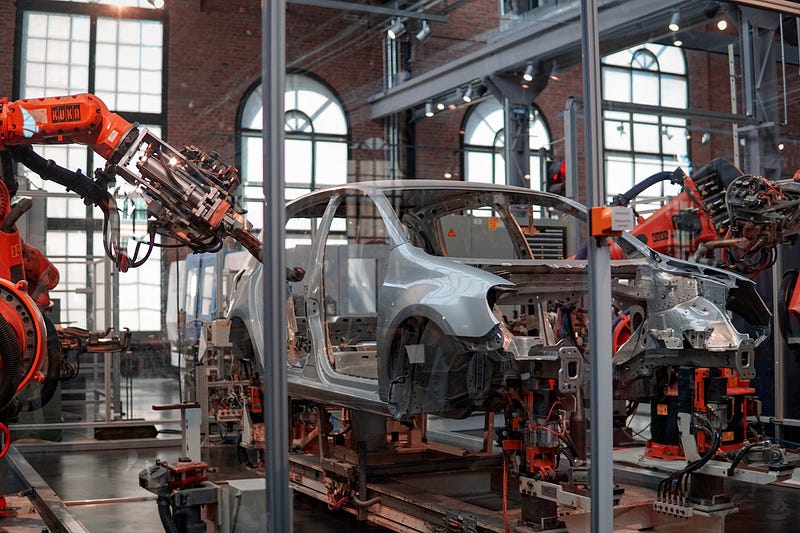A Discussion of Chapter 7 “Despite Doubts from the Left”
Economic growth is the result of the Bourgeois Deal that allowed us to escape subsistence living, and yet the Left eyes growth with suspicion, concerns, criticism, and policies that would slow or stop it.
In this chapter, McCloskey turns her attention to these anti-growth arguments advanced by the Left, but if you are feeling attacked, don’t worry, the Right is examined in the following chapter.
Be bold — read her critiques of both sides, regardless of which side you like. But for now, any Leftists reading, buckle in and try not to let your heads explode. Seriously, it would be interesting to hear your thoughtful answers to these points she raises.
Why the Left is Anti-Growth
McCloskey starts the chapter asserting the Left is alarmed by economic growth,
…see(ing) economic growth as a vine smothering the world, a monopolistic kudzu, bringing on the cultural triumph of the West. (p. 55)
Being anti-growth ultimately means being against the Great Enrichment that has increased the standard of living for so many and can lead to adopting policies that will bring it to a halt.
This may be more of a feature than a bug as McCloskey notes as the growth of wealth for so many due to the Great Enrichment makes the revolution of the capitalist system they seek unlikely.
It does not mistake, though, that the fruits of the Great Enrichment have made the proletariat into a petty bourgeoise, lamentably uninterested in revolution, and in its vulgar way now able to enjoy the goods and services formerly available only to the better sort of people. (p. 56)
Four Objections to Growth and Why They are Wrong
First, a common critique of the economic growth capitalism generates is job losses due to technological change.
To recap, the Great Enrichment happened because capitalism incentivizes innovation that causes our output to grow faster than our population.
It is not that the Left is wrong about the job losses; it is that they are not seeing the whole picture.
Growth can cause job losses from automation like AI and robots. But this is the destruction part of creative destruction, moving people into better jobs with less drudgery.
And the goods being produced with more machinery, AI and robots will show an increase in productivity. That means more output per person, which ultimately means lower prices.
The destruction part of creative destruction should not be stopped because it stops the Great Enrichment for all. Instead, it calls for a public policy discussion we should be having to assist workers who are displaced.
Second, McCloskey responds to the charge that the displaced workers will have lower wage jobs. To the extent some do not move to higher wages, it could be due to the revelation of protectionist distortions.
If the job losses come from unionized industries, the new jobs may have lower wages in comparison because the monopoly power of unions had negotiated wages above market equilibrium, which ironically incentivizes the businesses to replace labor with machinery.
This distortion is similar to industries that get tariffs as trade protection causing higher prices to all. It is good for them but it is paid for through higher prices by all others.
I think McCloskey’s point here is that if workers move to lower wages due to technological change and economic growth, you need to be sure the higher wages were market based in the first place.
I would add though, the reality is labor is not homogenous. Someone laid off in their 30s has time to retrain and move into better jobs while someone who is displaced in their 50s may never. Add in the restrictions we put on our ourselves such as not wanting to move out of our hometown or other self-imposed constraints, and labor can bear the brunt of technological change.
Again though, I say this is a public policy discussion not a justification to stop the Great Enrichment.
Third, the “productionist fallacy,” or trickle up: Prosperity cannot be created by paying employees more because it makes the products cost more for all. (p. 56)
As McCloskey sums it up in this chapter,
The left’s trickle-up economics is as illogical as is the right’s trickle-down version. Neither focuses on what actually increases real income, which is bettered production. (p. 57)
Fourth, we need to observe the creative part of creative destruction. The robots are produced by someone else who now have jobs and income they would not have had. In addition, there are jobs installing, repairing, maintaining, and running the new technology.
McCloskey argues that robots and AI are tools that are at the heart of the technological change that means we get more output from our inputs, setting us free from the Malthusian world of want. (p. 57)
Focusing on the destruction part and concluding growth is bad ignores the creative part and the rising standard of living.
After all, the point of an economy is production for consumption, not protection of existing jobs using old tools — horses, candles, hand-controlled drill presses. (p. 57)
That is, this leftist critique of technology, stemming from a fear of economic growth, taken to its logical conclusion would freeze us in time like the Amish.
Conclusion
It is not so much the Left is wrong in observing job losses that may only be replaced with lower wages. The problem is not seeing the bigger picture. By focusing on the negatives of economic growth only, their response would stop the Great Enrichment that has helped, and continues to help, all of us live better lives.
When the market is allowed to function and does not have any government granted monopoly powers to firms that freezes the process, competition whittles away the profit so in order to make it big, it will take a new product, service, method or technology.
This pressure is the creative part but it can only happen if the old is allowed to be destroyed. Our resources are scarce — this Malthus observed correctly. But if we allow capitalism to function, it finds new ways for us to produce more from them in better ways.
That means it is the search for profit that is driving forward the technological change that leads to a higher standard of living for all, the Great Enrichment.
The textile industry in the US is an interesting real life example that used to provide a lot of labor intensive jobs decades ago that were lost in the past few decades to cheaper labor abroad. Now, a combination of new technology, environmental issues, and supply chain concerns are leading to a return of this industry to the US.
Next chapter McCloskey turns her critical eye on the Right and their lack of faith in the continuation of the Great Enrichment.
Reference: McCloskey, Deirdre Nansen, 2016. “Despite Doubts from the Left,” Chapter 7 of Bourgeois Equality, The University of Chicago Press.




